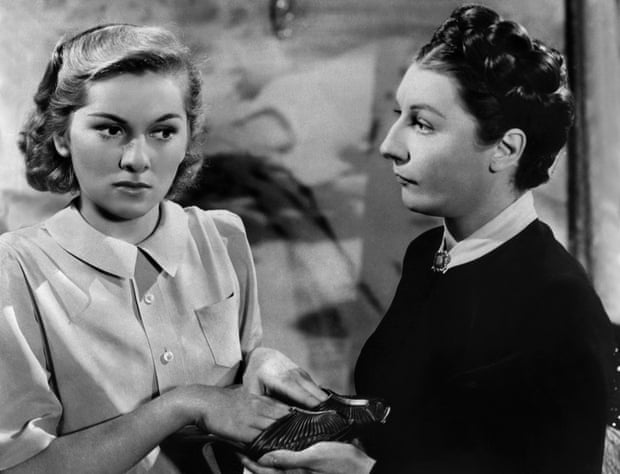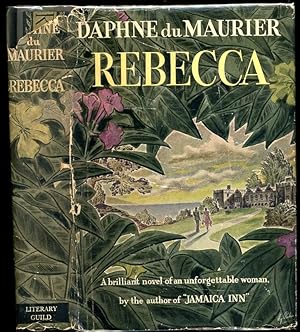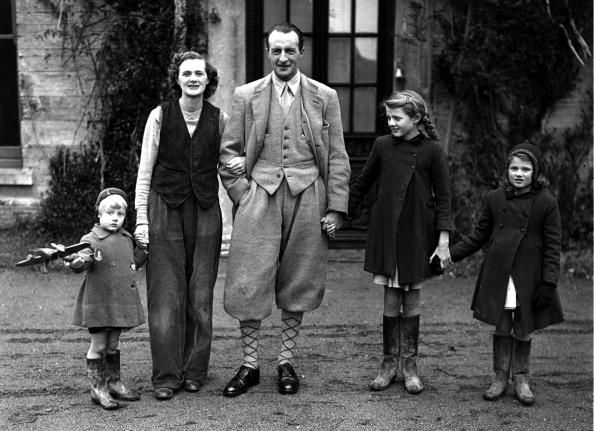1. What effect does it have on the novel that the heroine has no first name?
3. What kind of character is Maxim de Winter, and why does a man of his stature fall in love with the young heroine? What draws him to her?
4. The heroine describes Maxim thus: "His face...was arresting, sensitive, medieval in some strange inexplicable way...rob him of his English tweeds, and put him in black, with lace at his throat and wrists, he would stare down at us in our new world from a long distant past—a past where men walked cloaked at night, and stood in the shadow of old doorways, a past of narrow stairways and dim dungeons, a past of whispers in the dark, of shimmering rapier blades, of silent, exquisite courtesy." Why is this an apt description? In other words, how does it set the tone and foretell the events of the novel?
5. The setting of the book contributes so much to the story, that the author almost treats it like a character in itself: Manderley the house, its servants, the “slaughterous” rhododendrons, its proximity to the ocean, etc. How would this story have been different if Maxim was not the owner of this large estate, or if it was not located near the sea? Or if there was no housekeeper to dote on her previous mistress?
6. What role does Mrs. Danvers play in this story—in her relationships to the characters (dead and alive) and also in relation to the suspense within the novel?
 |
| "Put your hands in these shoes, you little fool. Rebecca's feet were tiny, unlike your boat oars for feet. Now jump out the window, Bigfoot. Do it. Do it!" |
7. What is the heroine led to believe about Rebecca? In what way does the dead woman exert power over Manderley? At this point, what are your feelings about the new Ms. de Winter? Are you sympathetic toward her plight...or impatient with her lack of assertion? Or are you confused and frightened along with her?
8. What is the heroine's relationship with Maxim's sister Beatrice and her husband Giles? What about the advice Beatrice offers the heroine? ?
9. Both Beatrice and Frank Crawley talk to the heroine about Rebecca. Beatrice tells the heroine, "you are so very different from Rebecca." Frank Crawley says that "kindliness, and sincerity, and...modesty...are worth far more to a man, to a husband, than all the wit and beauty in the world." What are both characters trying to convey to the heroine...and how does she interpret their words?
10. A major theme throughout Rebecca is identity. Rebecca is physically no longer alive, but is present everywhere – in everyone’s memory, in every room, every object, in every place the narrator goes, in every thought she has. The menacing Mrs. Danvers even says, “Do you think she can see us, talking to one another now? Do you think the dead come back and watch the living?” What does this say about the power of a person’s memory or legacy?
11. How might the costume ball—and the heroine's appearance in Rebecca's gown—stand as a symbol for young Mrs. de Winter's situation at Manderley?
12. Were you surprised by the twist the plot takes when Rebecca's body is found...and when Maxim finally tells the truth about his and Rebecca's marriage? Did the strange details of plot fall into place for you?
13. How, if at all, do Maxim's revelations change your attitude toward him? Did you feel relief upon first reading his confessions? Can you sympathize with his predicament, or do you censure his actions? What do you think of the heroine's reaction? In her place, how might you have reacted?
14. How does this new knowledge alter the heroine's behavior and her sense of herself?
15. After Favell threatens to blackmail him, Maxim calls on Colonel Julyan. Why? Why does Maxim act in a way that seems opposed to his own best interests?
16. In the end, what really happened to Rebecca? What is the full story of her death? Is it right that Maxim is absolved of any crime? Was he caught in an untenable position? Was Rebecca simply too evil—did she end up getting what she deserved?
17. How do you view the destruction of Manderley? Is it horrific...or freeing...or justified vengeance on Rebecca's part? Would the de Winters have had a fulfilling life at Manderley had it not burned?
** foreshadowing – clues in the story that tell you what’s coming, or the true nature of Rebecca’s character. For example: The narrator’s sense of peace when she burns Rebecca’s name and inscription in her poetry book; The ironic names of Happy Valley, or the boat named “Je Reviens” – “I come back”; Descriptions of Rebecca by Ben – “Tall and dark she was…gave you the feeling of a snake.”; Fireworks at the party, where “Manderley stood out like an enchanted house, every window aflame…”
18. Now return to the beginning of the book. How would you put into words, or explain, the sense of loss and exile that permeates tone of the opening? (You might think about a spiritual as well as physical exile.)
Extras
** Were you aware that Rebecca is a somewhat biographical story? Du Maurier’s husband was previously married to a dark, glamorous woman named Jan Ricardo who committed suicide by throwing herself in front of a train. Jealousy and insecurities began for Daphne when she found love letters from Jan to her husband still in his possession years later. In fact, Du Maurier called this book a “study in jealousy”.
Manderly is Menabilly - De Maurier's home: Here is an interview from the middle daughter Flavia (whom De Maurier was pregnant with when she was writing Rebecca in Egypt!)
I was familiar with Menabilly before we moved to the house in 1943 because my mother had taken me, my older sister, Tessa, and younger brother, Kits, trespassing in the grounds a couple of years earlier. We were living close by, about four miles away in Fowey, south Cornwall. Menabilly had been empty for 20 years; it was totally covered with ivy and in a terrible state of decay, but my mother knew she wanted to live there one day. As we peered through the broken windows she kissed the house and told us it was her favourite place. She had known of Menabilly for many years and used it as the inspiration for Manderley, the house in Rebecca [published in 1938].
Menabilly was owned by the Rashleigh family and my mother obtained a lease from them, which I think was for 20 years. She had to organise absolutely everything to do with the renovation of the house herself: it had cracks in the roof, no electricity, no running water and was full of rats. My father thought she’d gone completely mad, but my mother was quite astute when it came to money and managed to obtain £250 from the Ministry of Works, which was enough to pay for a large portion of the renovation.
We arrived at Menabilly in time for Christmas in 1943, and the change to the house from the first time I’d seen it was amazing. All the ivy had been cut back and the windows mended. But there were still rats. Tessa, Kits and I had to share a bedroom, and while Tessa was slightly cross about that, Kits and I were glad of the company because we were a little scared. We had never been in such a huge house before and we could hear the rats running around in the attic.
The little toy horses Kits and I are sitting on in this picture were given to us for Christmas by our grandmother. We loved them so much that we used to take them to bed with us. I was mad about horses. Kits and I would often gallop on all fours pretending to be horses, and we were very good at it too.
There are four years between me and Tessa – she was 11 here – and four between me and Kits, who is three in the picture. We were never allowed to mix with other children because my mother couldn’t bear the thought of having to meet other young parents, believing it would upset her writing routine. She had a strict daily routine and always had breakfast in bed. She’d get up about 10am and walk across the lawn to a little field where she had a garden hut. She wrote there until about one o’clock, when she’d come in for lunch and then usually take us for a walk before getting back to writing. She was a great one for walking and we’d often go down to the beach. In the summer we would swim and have supper picnics in isolated coves that only we knew about. It was magical.
This funny fellow goes over books related to learning more about Daphne, only 8 minutes, and pretty adorable.
and here is the Hitchcock movie full version...




Comments
Post a Comment